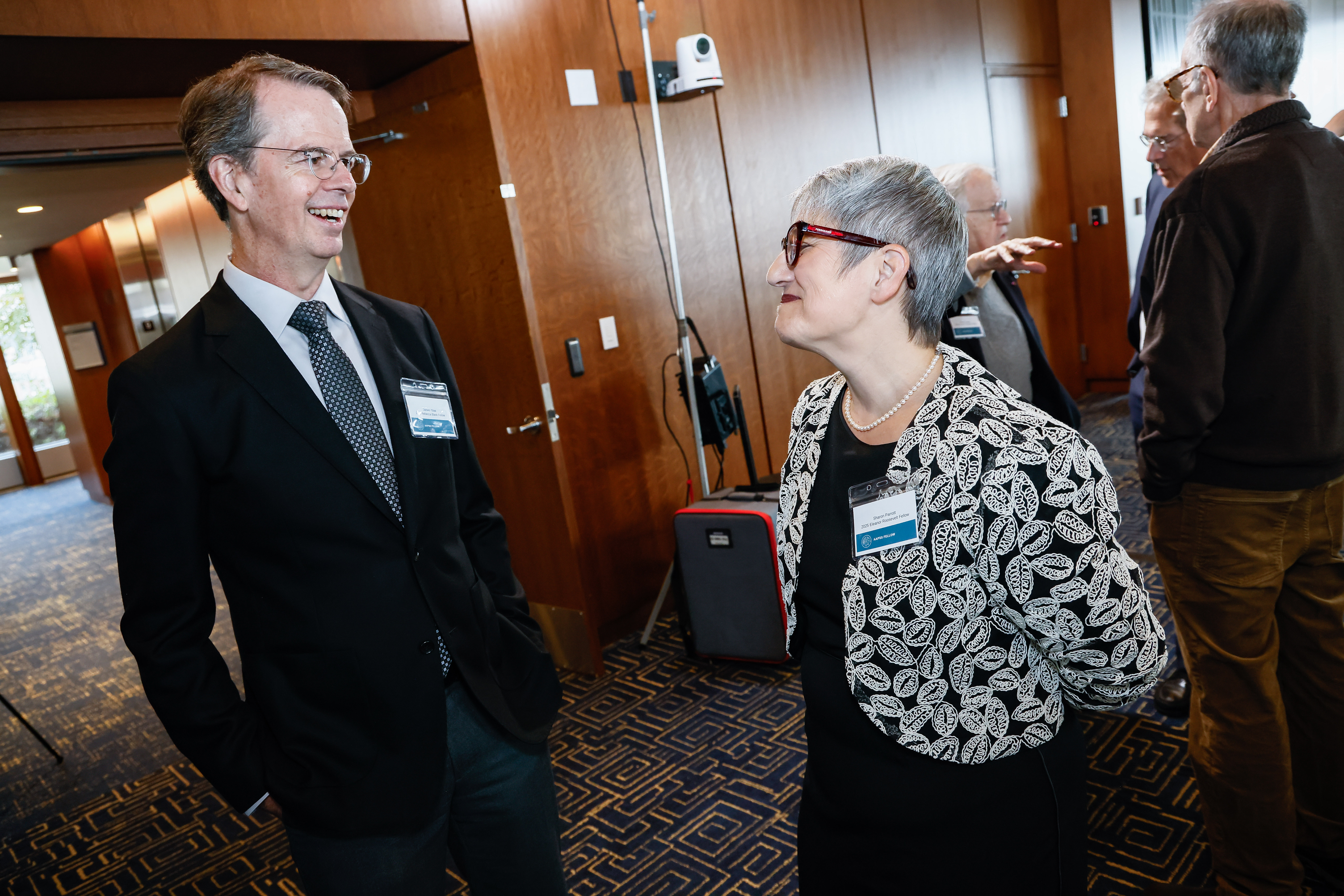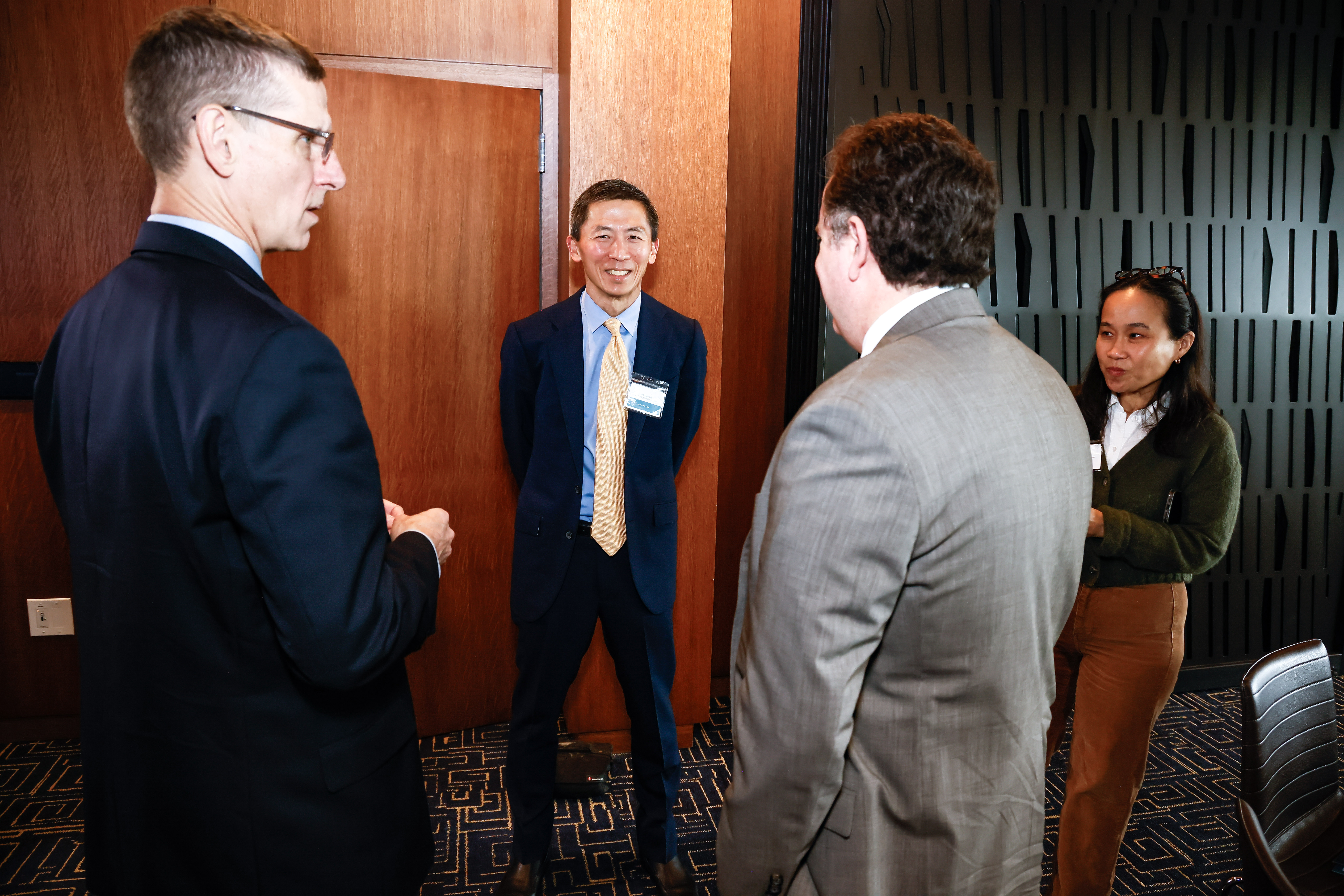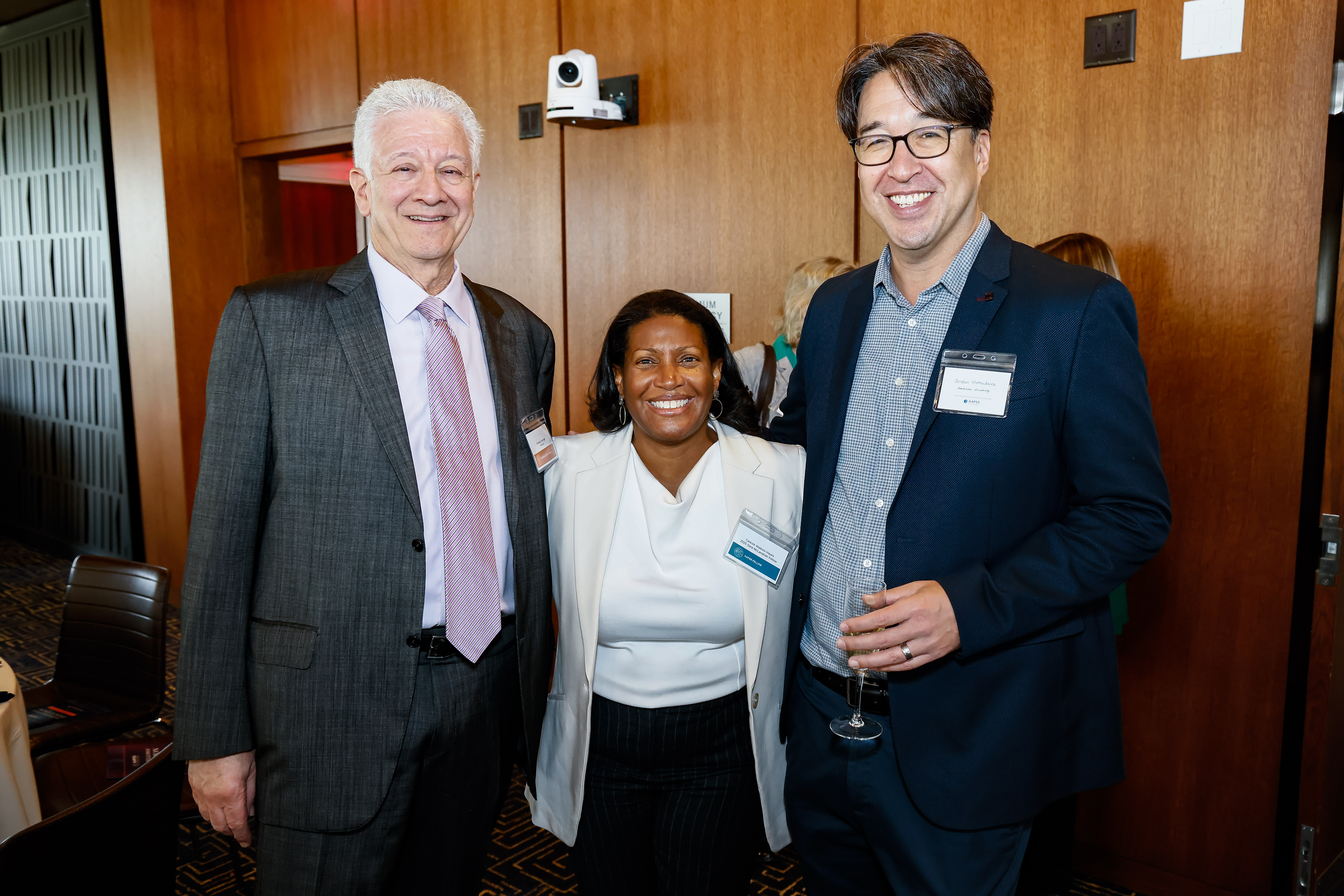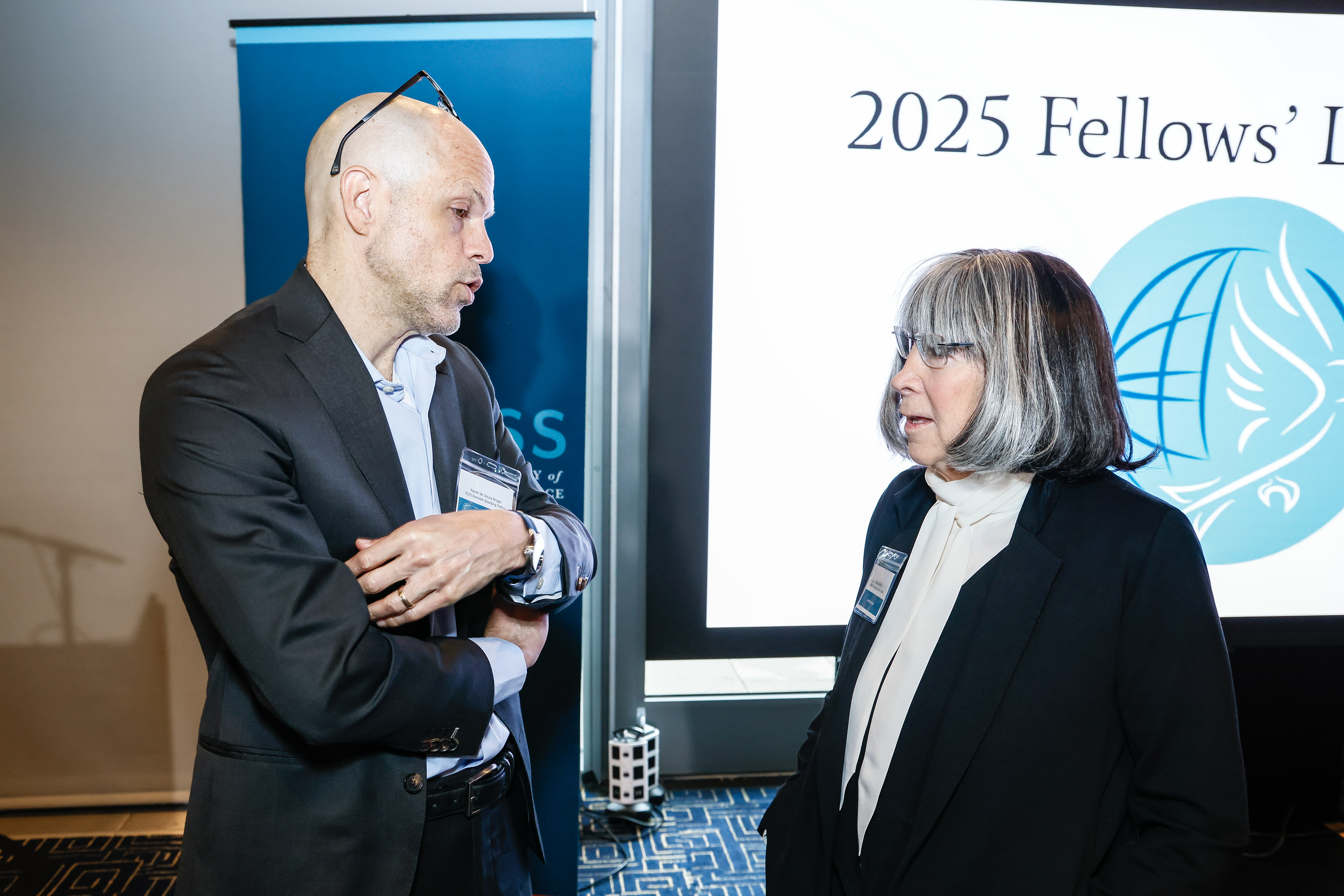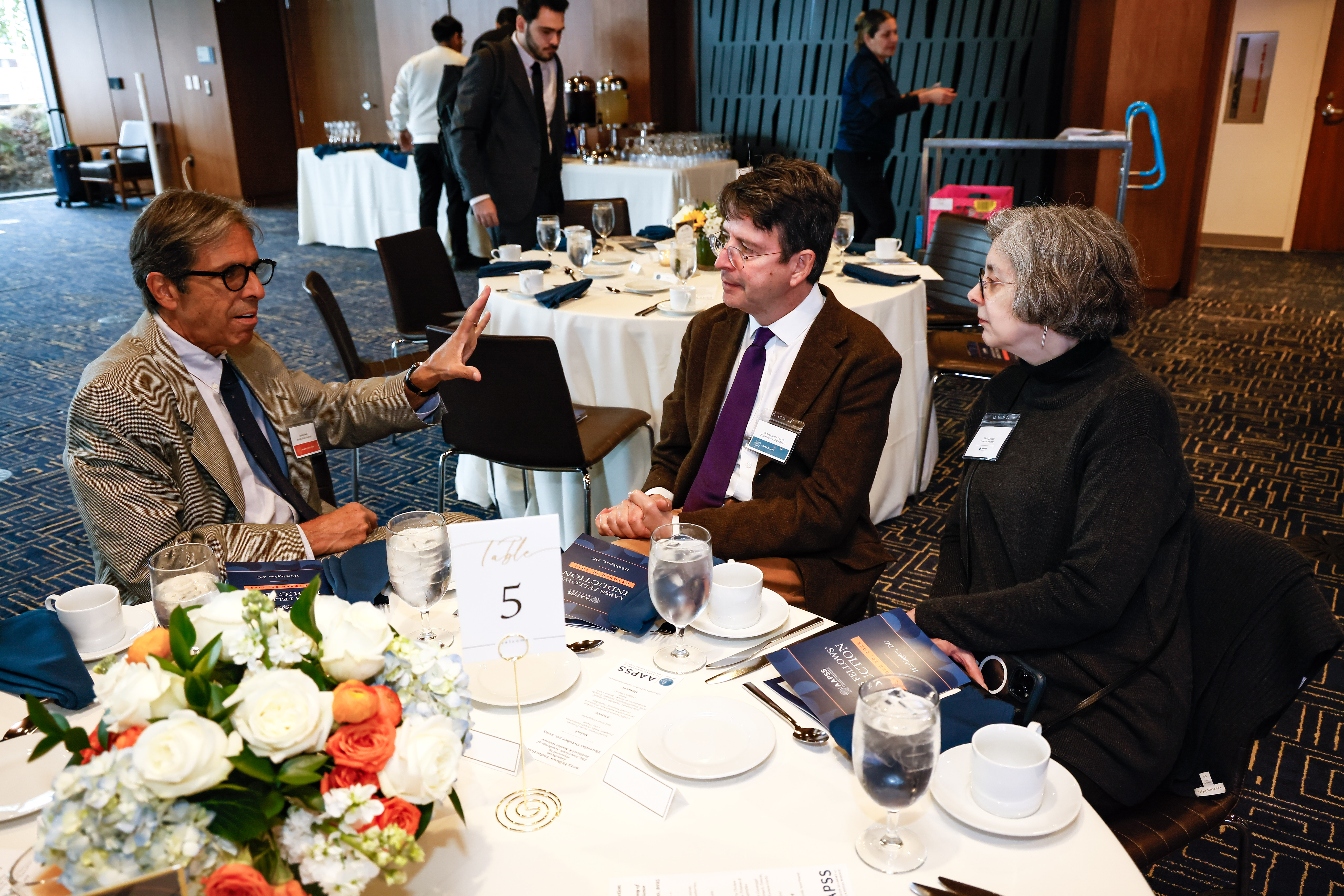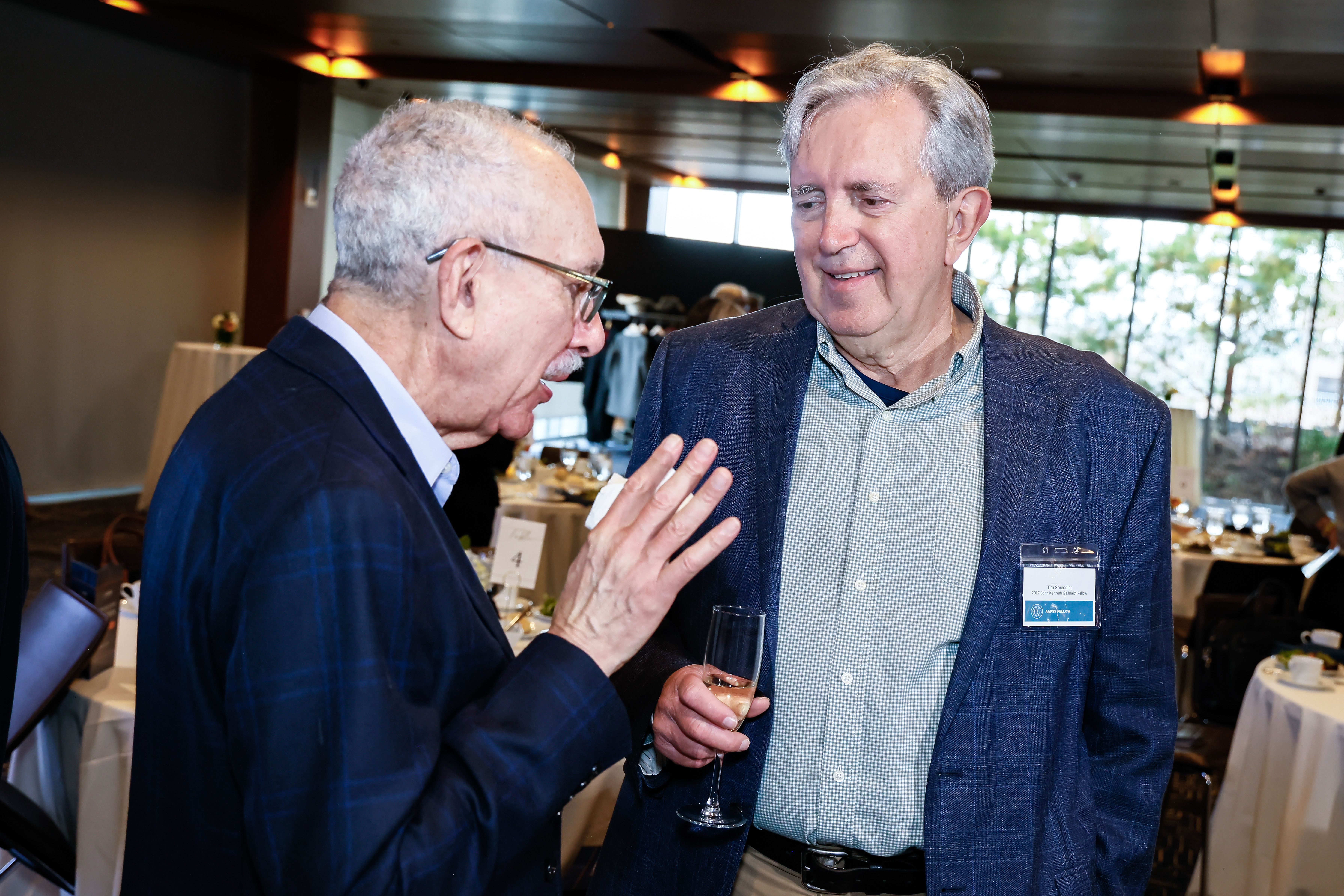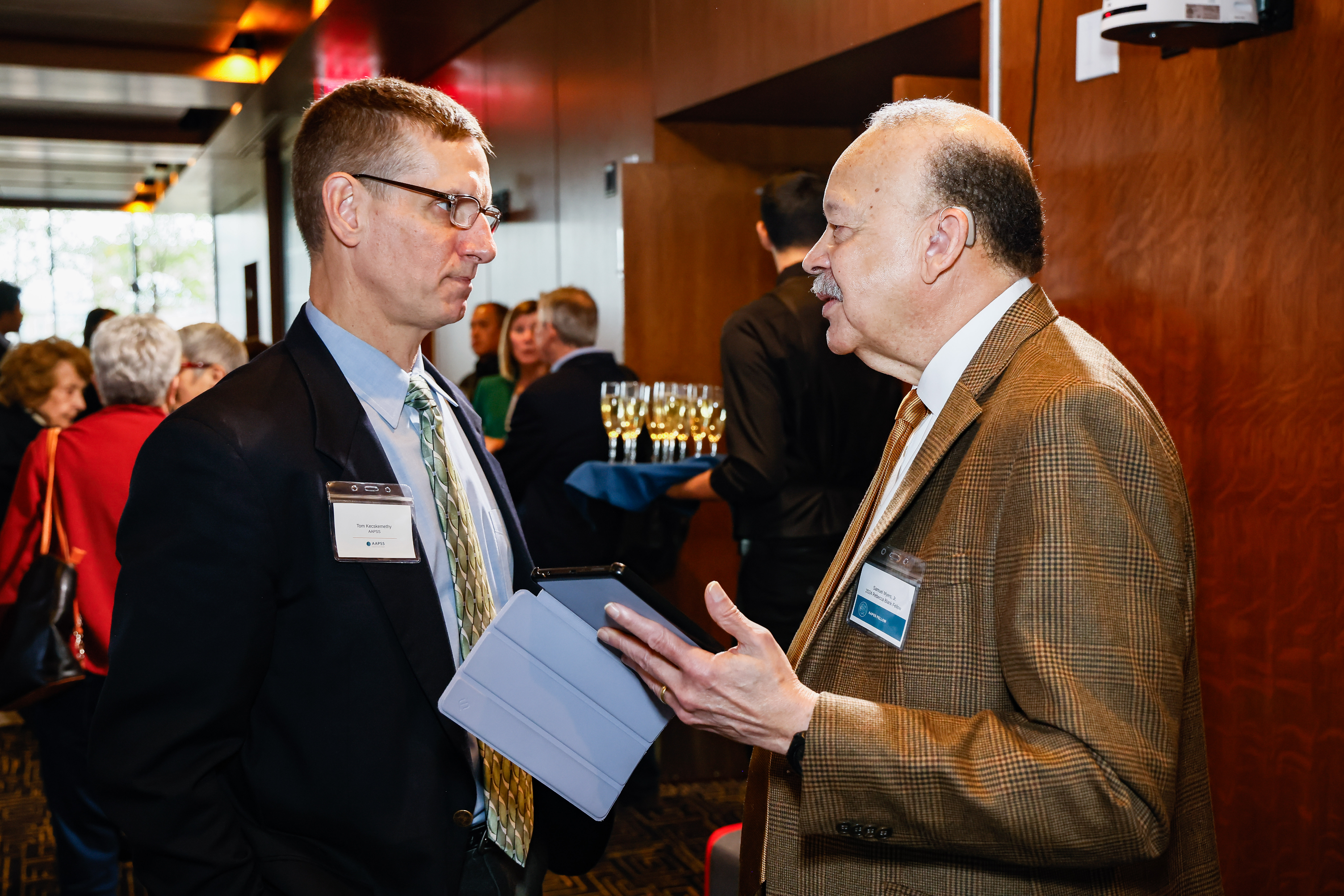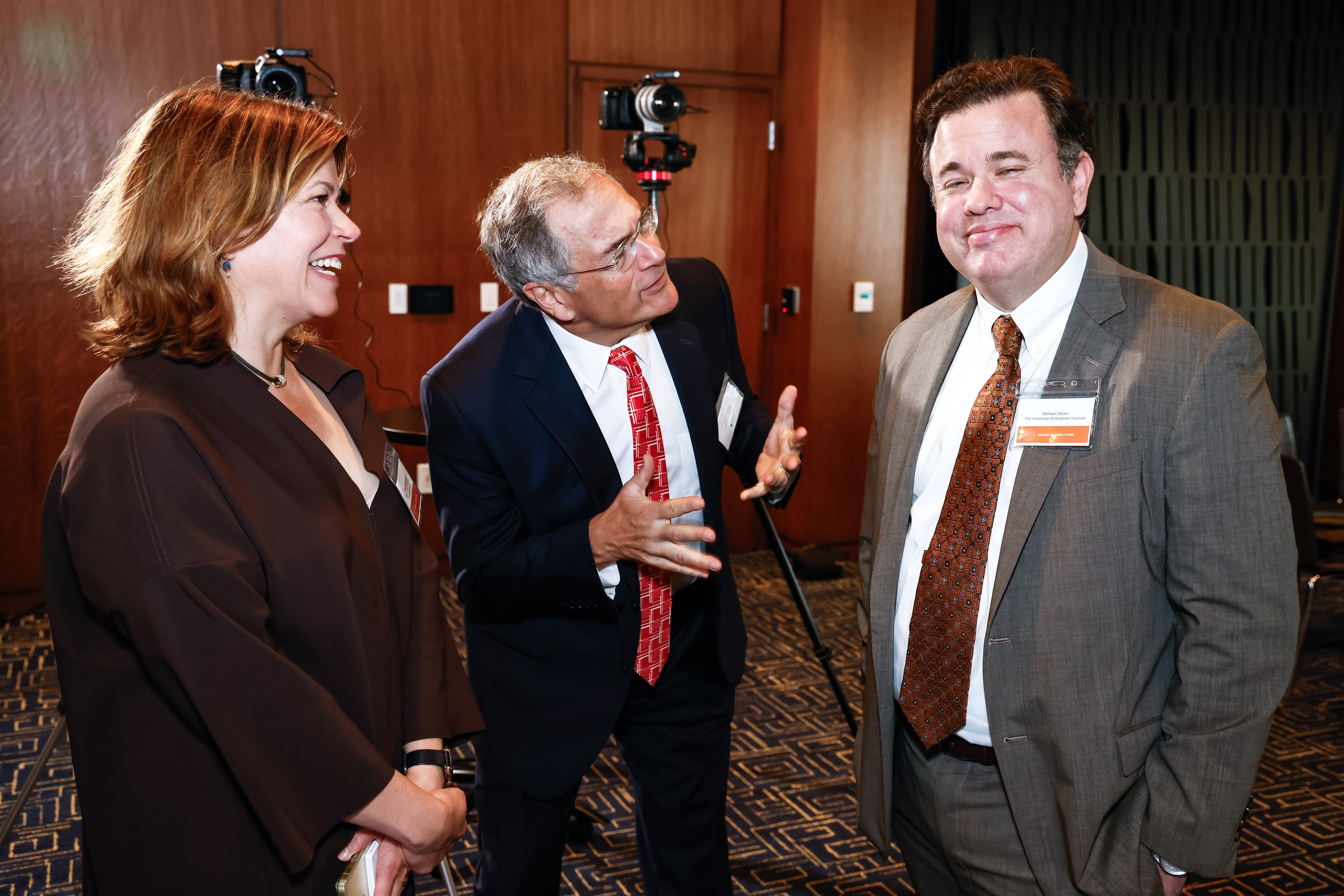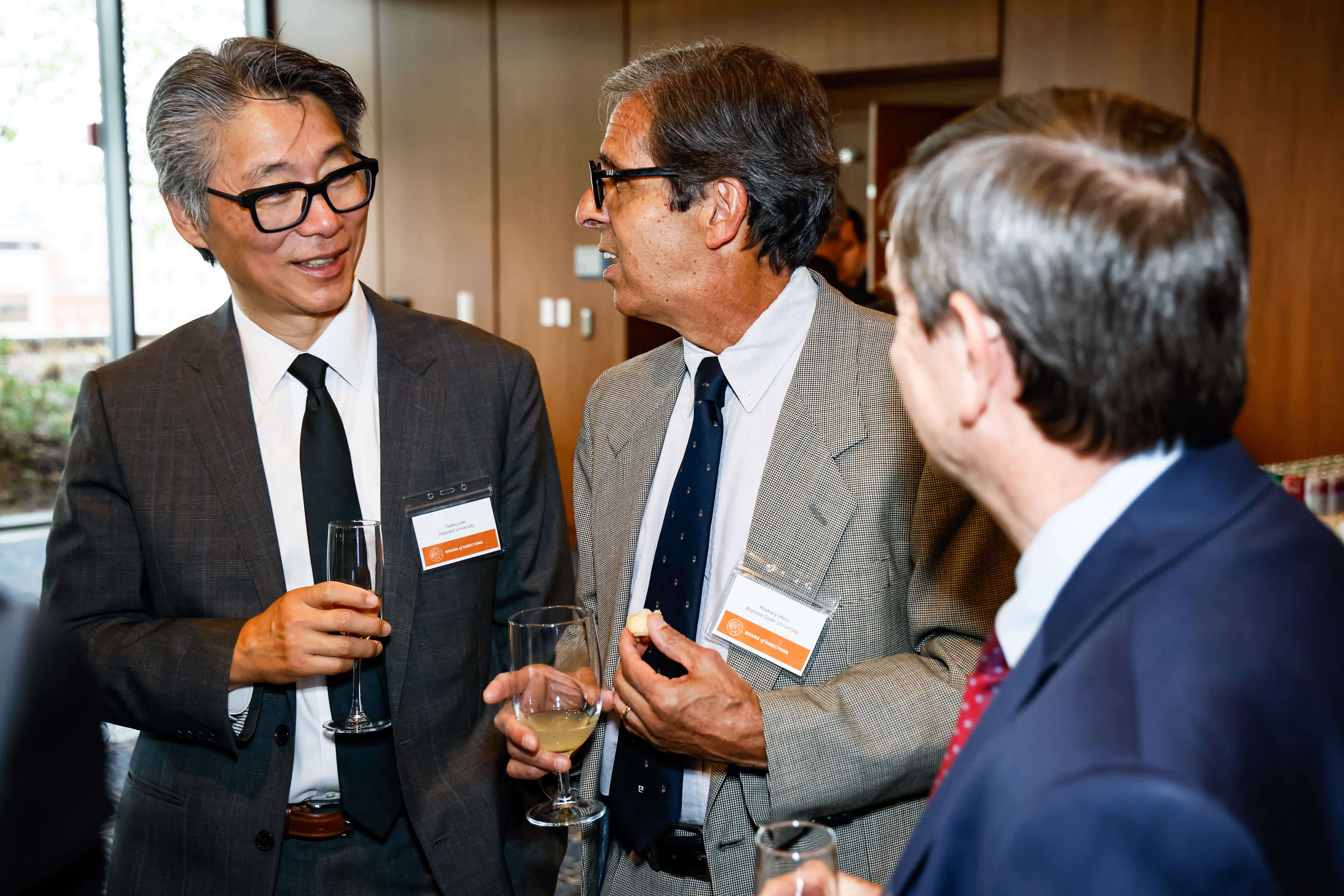The 2025 Fellows of the AAPSS were inducted on October 30 at a luncheon held in Washington, DC. Xavier de Souza Briggs, Michael Jones-Correa, Goodwin Liu, Sharon Parrott, Celeste Watkins-Hayes, and James P. Ziliak received a warm welcome from AAPSS President Sheldon Danziger, the board of directors, and other fellows as they accepted their fellowships.
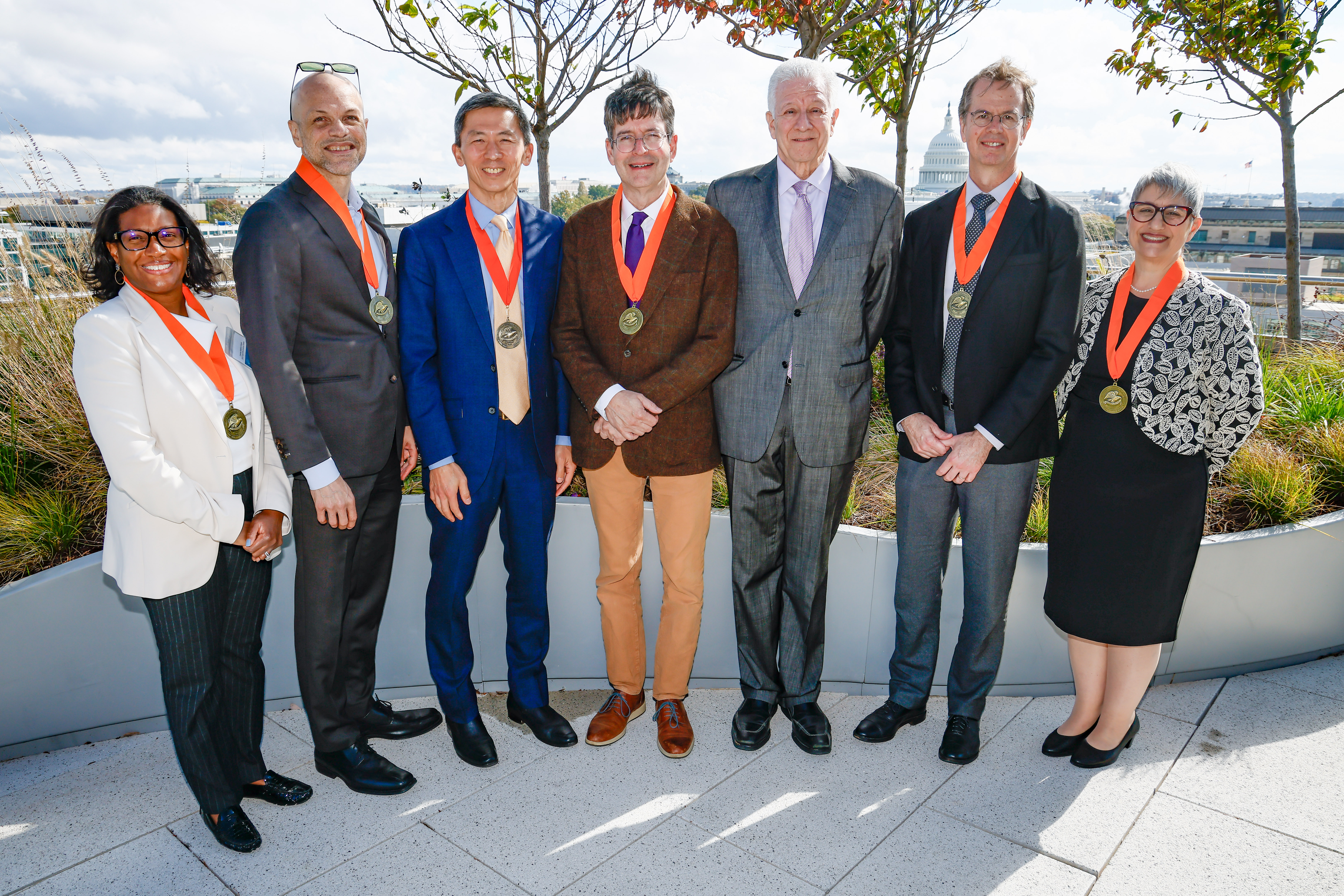
(Photo by Paul Morigi)
All of the incoming fellows gave brief remarks that responded to the same prompt: “Social research evaluates existing and proposed public policies and governance issues. Over the past 50 years, governments, philanthropies, and civic organizations have valued social science evidence and considered it in their decision-making. In the current environment, this relationship has unraveled. How can trust in social science be restored?” Even as they spoke from divergent professional backgrounds, common threads emerged from their remarks (all of which can be watched here): effectively representing and addressing the needs of the people most affected by policy change, making research accessible to a broader audience, and capitalizing on partnerships with institutions and communities.
Imagine if every research agenda began with the question, “Who will this help, and how?” The value assigned to our evidence and arguments would be hard to deny. When people can see their lives reflected in our findings and policy recommendations, they are far more likely to believe in the power of what we do.
—Celeste Watkins-Hayes
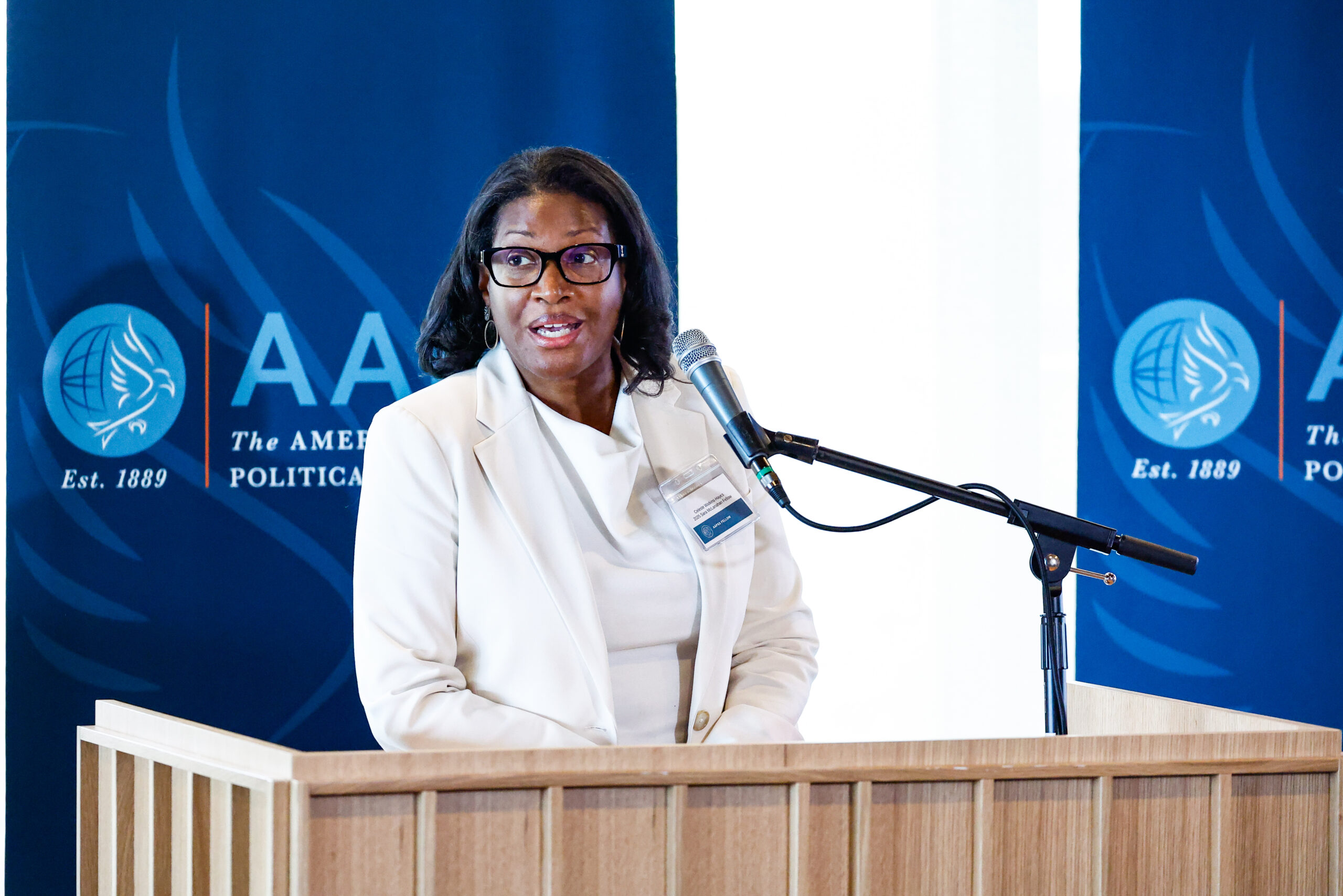
(Photo by Paul Morigi)
Xavier de Souza Briggs, who is known for his work in research design and evaluation, invoked the design principle of need-finding to suggest that early-career policy analysts and social scientists should reexamine the foundations of their research questions in an effort to redefine them “by those who have a stake in their resolution.” Celeste Watkins-Hayes and Sharon Parrott echoed that sentiment: Parrott cited her experiences leading the implementation of federal human services programs, observing that “people directly impacted understand how these systems work in ways that researchers simply can’t,” and Watkins-Hayes quoted a saying that she frequently heard in her studies of women living with HIV—“Nothing about us, without us”—to show that research partnerships with affected communities can strengthen those individuals’ trust in social science and become a tool for collective empowerment and mutual gain.
Just as the physical sciences reveal the workings of the natural world, the social sciences hold up a very powerful mirror to society. But when the mirror does not reflect all of society, the people left out lose confidence. For them, social science can feel like a fun-house mirror, a mirror of distortion, or a hall of mirrors, the visual equivalent of an echo chamber.
—Goodwin Liu
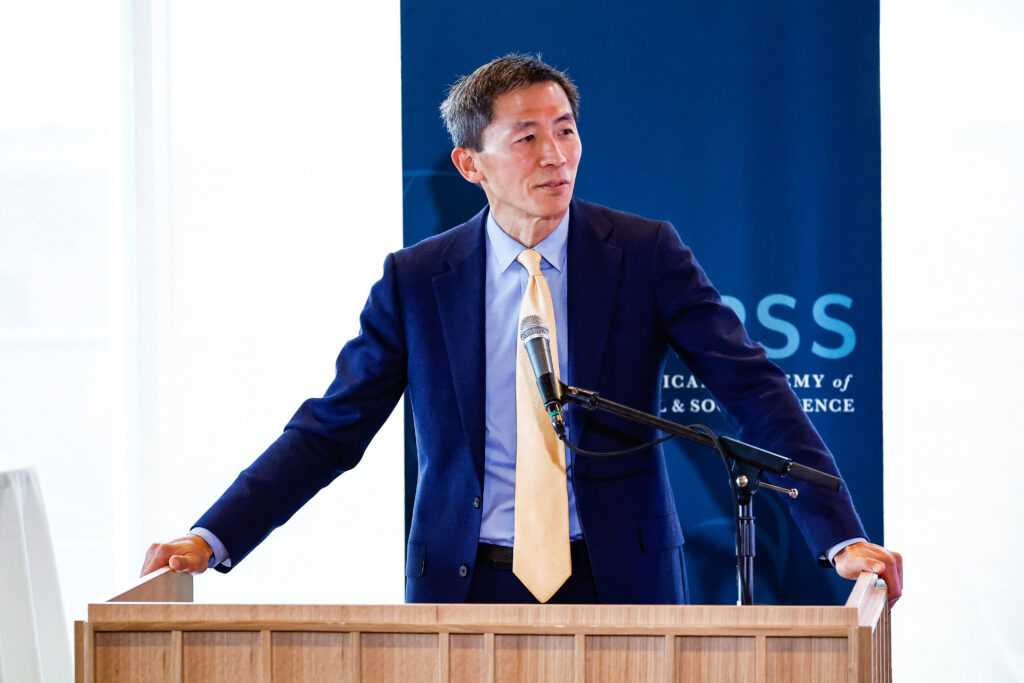
(Photo by Paul Morigi)
Goodwin Liu recalled the unexpected emotional reactions he received when presenting research about the challenges faced by Asian Americans in the legal profession: For many Asian American lawyers and law students, it was the first time they had ever seen their experiences reflected in social research. Liu suggested that examining the needs and experiences of other communities in the same way might reduce skepticism among those who see little use in the social sciences. Watkins-Hayes also called for a “fuller mirror of society” in social research: Acknowledging the shortcomings of extant research, she said, demonstrates a commitment to learning among scientists and can help to restore trust among the many constituents of the scientific enterprise.
To understand impact means being willing to dive into these complexities, to work with people that are actually implementing or understand those nuances, to explore how data can be generated in real time, and to involve people who are impacted in ways that go beyond just asking them to tell their stories.
—Sharon Parrott
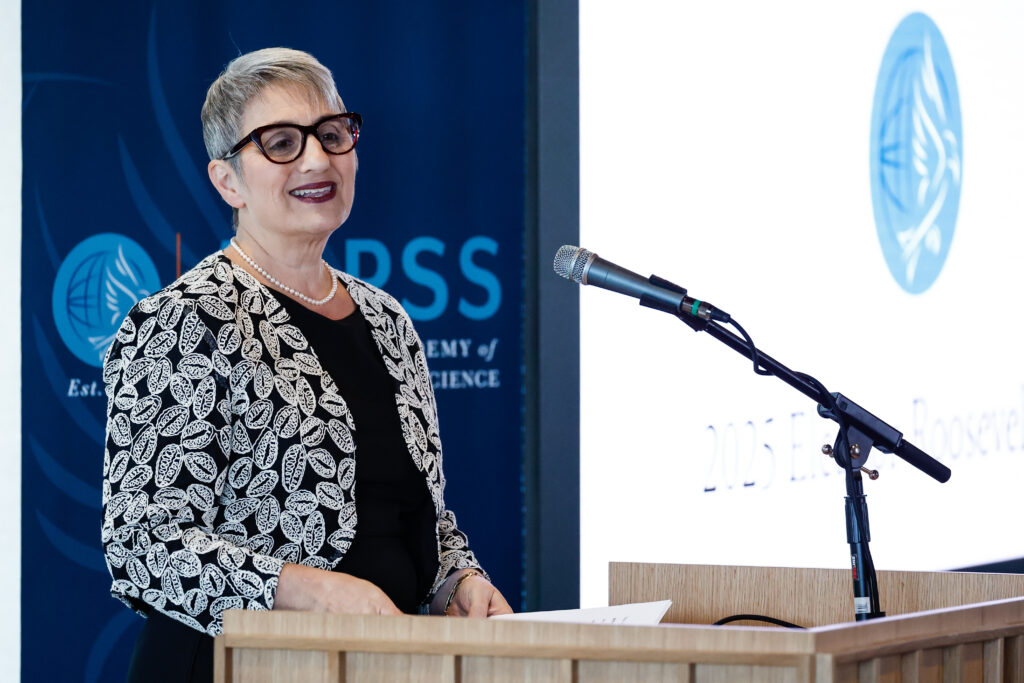
(Photo by Paul Morigi)
Parrott also highlighted the fact that currently accepted practices in the conduct and communication of research cannot keep up with the scale and speed of policy change, adding that they must be improved to better address the complexities of implementation and evaluation across states. Parrott and James Ziliak—both of whom have testified before Congress—encouraged engagement with press, policymakers, and the general public in new ways beyond the traditional journal article. Ziliak called upon social scientists to be “scholars of two worlds”: first as academics producing rigorous evidence, and second as translators of that evidence to the wider public.
I believe translational scholarship retains the same level of rigor demanded in our peer-reviewed publications, but disseminated in a fashion that meets the public where it’s at.
—James P. Ziliak
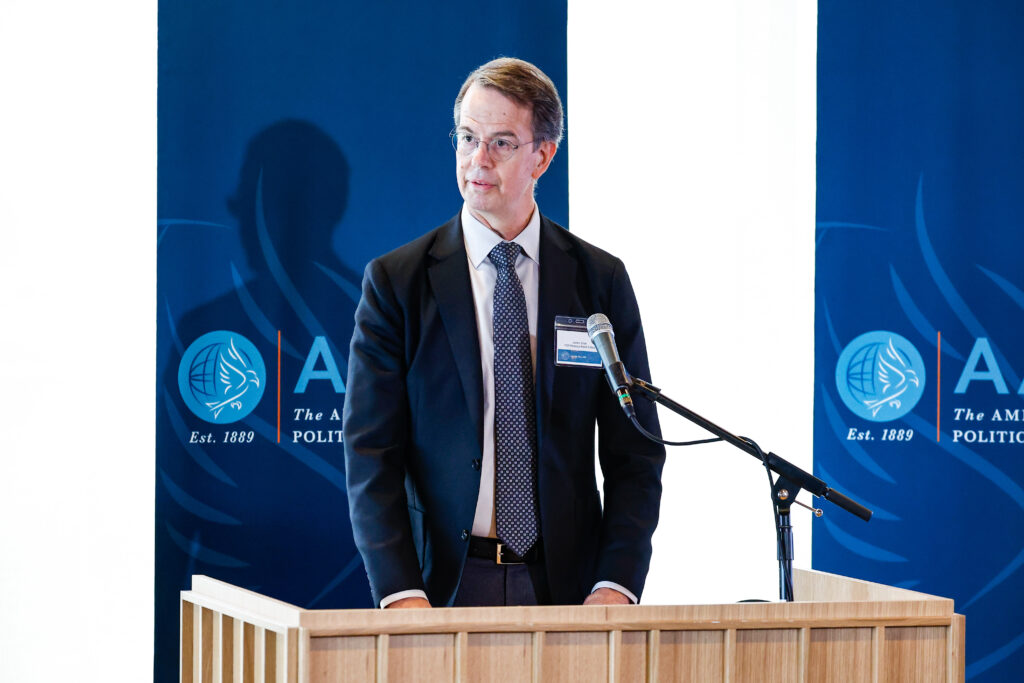
(Photo by Paul Morigi)
Briggs and Michael Jones-Correa challenged the prevailing view that trust in the social sciences could be restored through persuasion alone, noting that evidence-based arguments no longer hold the power they once did. Jones-Correa took a historical approach, referencing past collaborations between universities and the U.S. government that, while remembered for their positive results, came with their own downsides. For instance, when federal investment in universities surged after World War II, the National Defense Education Act provided assistance for the studies of foreign languages and engineering—but with a controversial caveat requiring funding recipients to sign a statement of loyalty to the U.S. government. Jones-Correa compared the backlash among academics against the clause (which was eventually rescinded) to universities’ responses to the Trump administration’s “Compact for Academic Excellence in Higher Education” and proposed that academics consider partnering with other powerful institutions to broaden their reach without sacrificing research integrity.
The role of universities—and in particular, the role of social sciences—as purveyors of knowledge isn’t just about truth and objectivity but about power and about coalitions with the powerful. We have to recognize that any coalition with the powerful comes with strings attached.
—Michael Jones-Correa
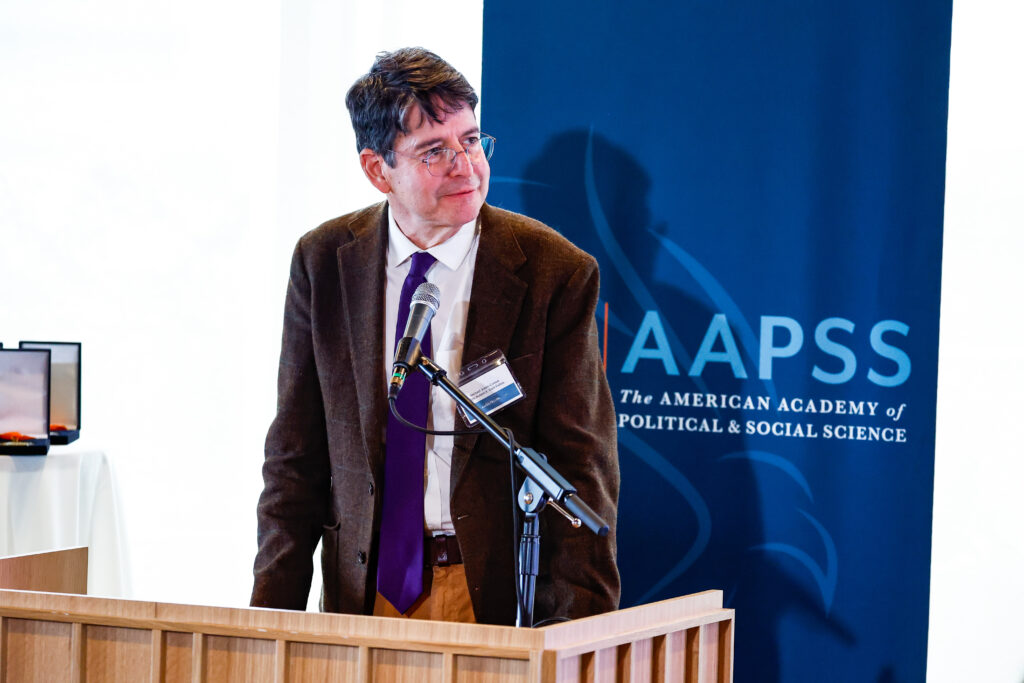
(Photo by Paul Morigi)
On the other hand, Briggs wondered if the solution lay within a context larger than policy analysis or academic expertise. He observed that the lack of regulation on social media platforms and in online public spaces has drastically changed how people access and process information, resulting in an erosion of “basic information rules” that continues to be upheld by big tech companies’ lobbying interests. Ziliak cited a related phenomenon first studied by the political scientist Suzanne Mettler: Although Americans are increasingly reliant on safety-net programs, they have also become more mistrustful of the institutions underlying those programs. Mettler attributes this paradox, in part, to the success of organizations lobbying against government spending. Ziliak hypothesized that amplifying the voices of those who benefit at all levels of societal decision-making—not just at the federal level—might be necessary to restore trust in government and in social science.
We’ve treated this problem as though it’s solvable through some kind of persuasion campaign, as in, “We’re good and virtuous and knowing and useful, so you should change your mind.” That doesn’t tend to go well—and social science, in fact, teaches us why.
—Xavier de Souza Briggs
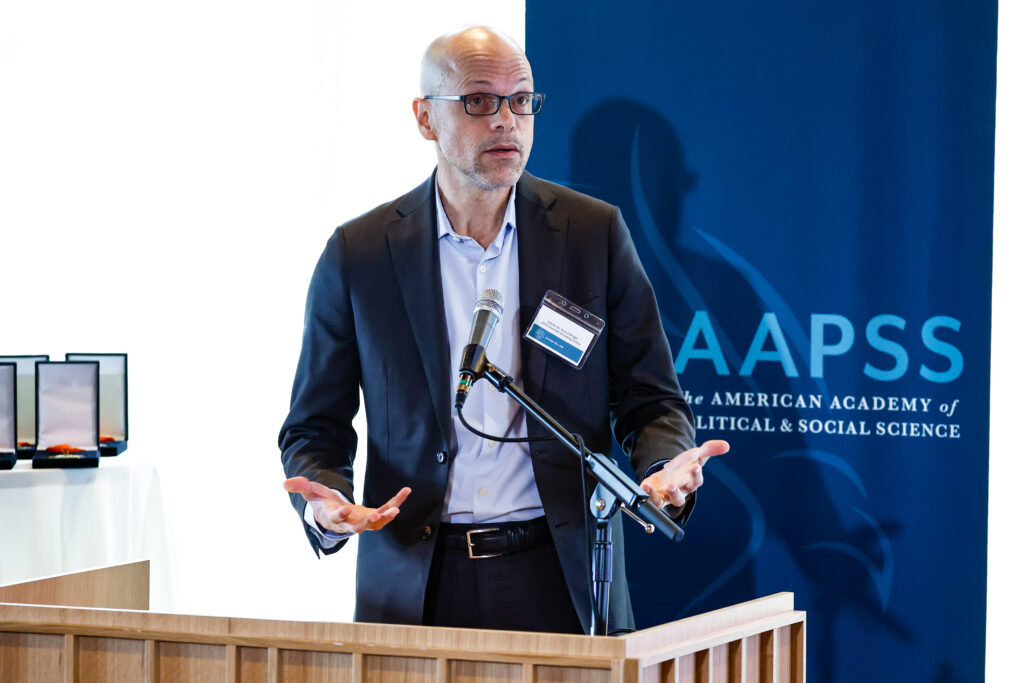
(Photo by Paul Morigi)
The AAPSS thanks everyone who attended the 2025 fellows’ induction, as well as those who helped make the event possible.
